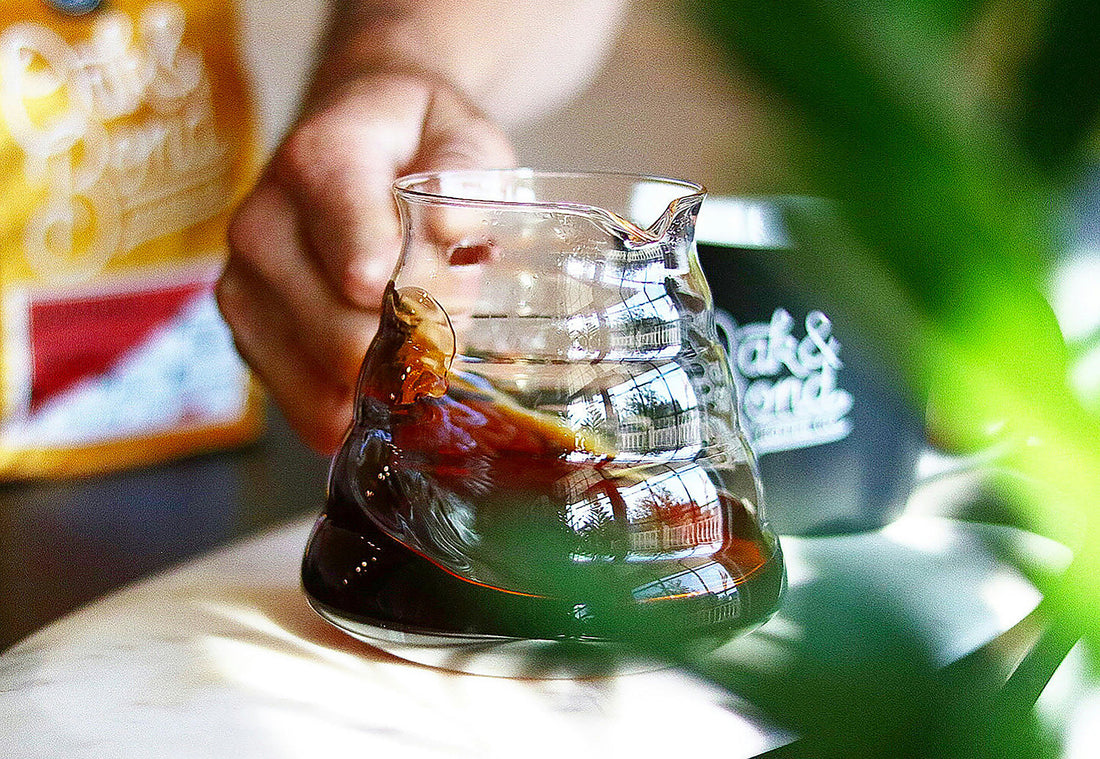
Does Decaf Coffee Taste Bad? The Truth Behind the Biggest Myths
Share
Decaf coffee has long been dismissed as weak, flavorless, and inferior to regular coffee. Many coffee lovers avoid it, convinced that removing caffeine also removes everything that makes coffee enjoyable. But is this reputation deserved?
The truth is, modern decaf coffee is vastly different from the stale, lifeless brews of the past, and it’s time to set the record straight.
Myth #1: "Decaf Tastes Bad" – A Reputation Earned, But Not Deserved
Decaf coffee has historically suffered from poor flavor, and there’s a reason for that. Older decaffeination methods relied on harsh chemical solvents, like methylene chloride and ethyl acetate, which stripped beans not only of caffeine but also of their essential oils and nuanced flavors. The result? A dull, sometimes papery brew that felt more like a consolation prize than a real cup of coffee.
But modern decaf is a different story. Methods like Swiss Water Process and Sugar Cane Process preserve the integrity of the beans, ensuring decaf remains rich, aromatic, and complex.
- Swiss Water Process: Uses water and carbon filtration to remove caffeine without chemicals, preserving antioxidants and flavor compounds.
- Sugar Cane Process: Uses a natural compound derived from sugarcane to gently extract caffeine while maintaining the coffee’s original taste profile.
Myth #2: "Decaf Has No Health Benefits"
Some believe that removing caffeine also removes the perks of coffee. But here’s the truth: decaf retains nearly all the antioxidants and beneficial compounds found in regular coffee.
- Chlorogenic acids and polyphenols—powerful antioxidants that help neutralize free radicals—are still present in decaf coffee. Source: Healthline
- Decaf may support heart health and help regulate blood sugar levels, offering similar metabolic benefits as regular coffee. Source: WebMD
- Because it’s gentler on digestion, decaf can be a great choice for people with acid sensitivity or those who want the benefits of coffee without the jittery side effects. Source: Healthline
Myth #3: "Decaf Is for People Who Can’t Handle Caffeine"
There’s an outdated idea that decaf is only for people who are sensitive to caffeine or avoiding it for health reasons. But coffee is more than just a caffeine delivery system—it’s an experience.
Many choose decaf for its rich flavors, comforting aroma, and social rituals, without needing a caffeine boost. Athletes, late-night coffee drinkers, and even those who consume regular coffee during the day often reach for decaf when they want to savor coffee without disrupting sleep or energy balance.
Conclusion: Rethinking Decaf
Decaf coffee is not what it used to be. It’s crafted with care, full of flavor, and just as satisfying as regular coffee. As more specialty roasters invest in high-quality decaf, the old myths are fading, and coffee lovers are starting to see decaf for what it really is: coffee, just without caffeine.
So next time you’re brewing a cup, don’t overlook decaf. It just might surprise you.
